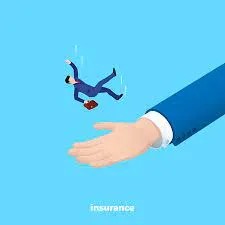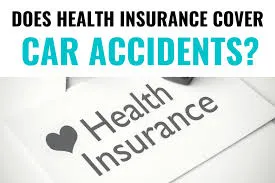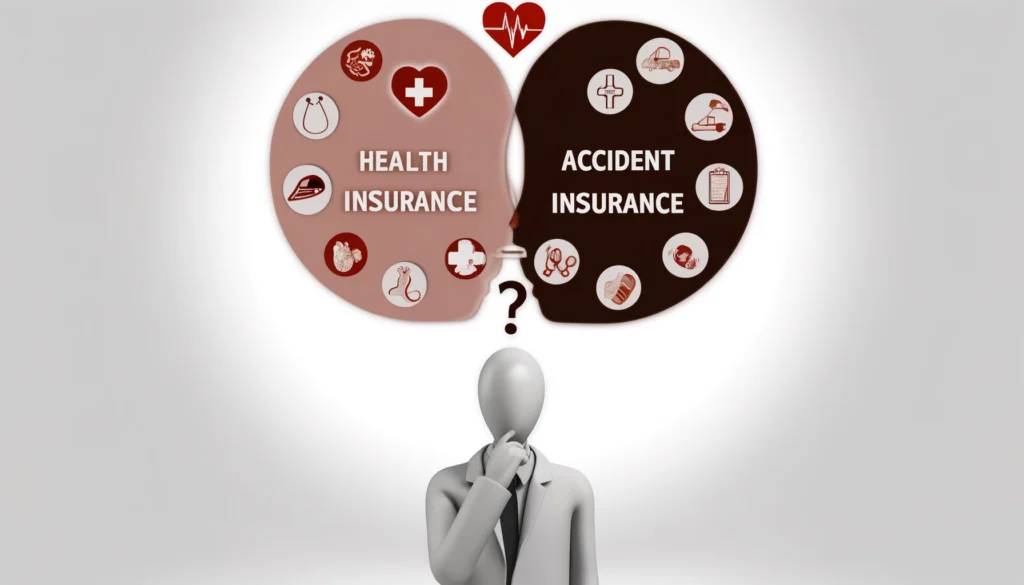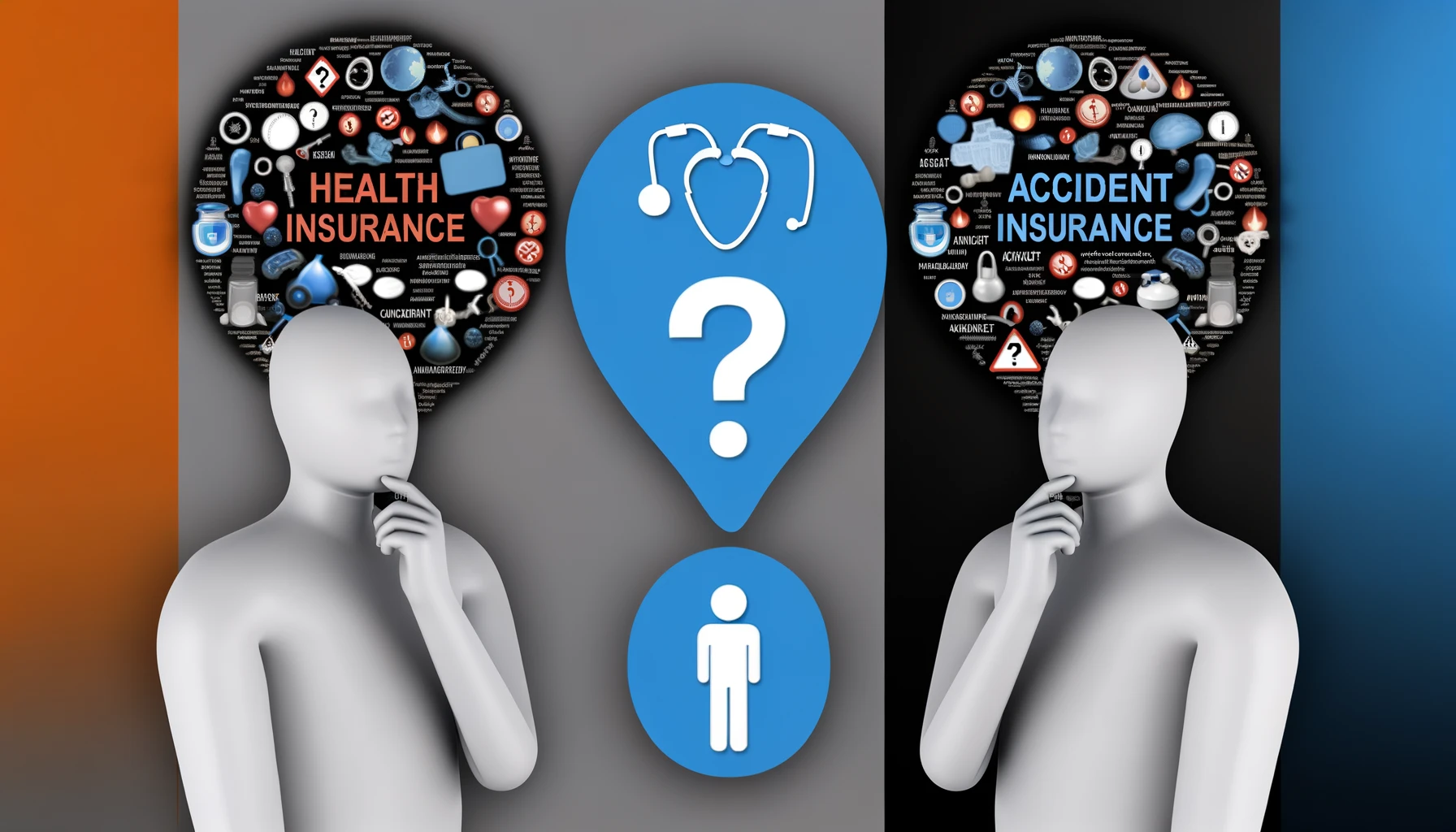Do i need accident insurance if i have health insurance– Navigating the complex world of insurance can often feel like trying to find your way through a maze, especially when deciding between accident insurance and health insurance. With healthcare costs skyrocketing and the financial burden of unexpected accidents weighing heavily on individuals and families, understanding the nuances of your coverage options has never been more critical. This article demystifies the key differences, coverage scope, and limitations of both insurance types, guiding you towards making an informed decision that best suits your needs.
From the financial implications of accidents on your wallet to real-life case studies where accident insurance made a significant difference, we explore every facet to offer clarity and direction. Furthermore, we delve into the intricacies of coordinating health and accident insurance to maximize your benefits and avoid coverage gaps. Whether assessing your risk or comparing insurance plans, our insights will empower you to make the right choice for your health and financial well-being.
Understanding-Do i need accident insurance if i have health insurance
Key Differences Explained
Understanding the fundamental differences between accident insurance and health insurance is crucial for making informed decisions about your insurance needs. Firstly, accident insurance is designed to provide financial coverage specifically for accidents, such as falls, injuries incurred during sports, or workplace accidents. On the other hand, health insurance offers a broader range of coverage, including medical care for illnesses, surgeries, prescriptions, and sometimes even preventive care and checkups.
“Accident insurance is like a safety net specifically for unexpected physical injuries, whereas health insurance covers a wider healthcare spectrum.”
- Scope of Coverage: Accident insurance typically covers expenses like emergency treatment, hospital stays, and sometimes rehabilitation related to accidents. It doesn’t cover illnesses or non-accident-related medical needs.
- Preventive Care: Health insurance plans often include preventive services to help avoid illnesses, unlike accident insurance which does not.
- Flexibility: Health insurance plans can be more flexible, offering different levels of coverage and options for various medical services.
Choosing between the two depends on your lifestyle, occupation, and health priorities. For instance, individuals in high-risk jobs or active sports enthusiasts might find accident insurance more relevant, while those seeking comprehensive medical care coverage would benefit more from health insurance.
Coverage Scope and Limitations
- Accident Insurance Limitations: While it provides a safety net for accident-related expenses, it does not cover diseases or health conditions that are not the direct result of an accident.
- Health Insurance Benefits: Offers extensive coverage including doctor visits, hospital stays, preventive care, and treatments for illnesses and conditions.
- Cost Considerations: Accident insurance plans are typically less expensive than health insurance, reflecting their narrower coverage scope.
It’s also important to note that some health insurance plans may include certain accident-related benefits, but these can vary widely between policies. Therefore, understanding the specifics of what each policy covers is essential. This knowledge will enable you to identify any gaps in your coverage and decide if supplementary insurance like accident protection is necessary for your situation.
“Delving into the specifics of your health insurance policy is key to understanding its scope and any additional accident coverage needs you may have.”
Considering your current health status, lifestyle, and financial capacity will guide you in aligning your insurance protection with your actual needs, ensuring that you’re neither underinsured nor overpaying for unnecessary coverage.
Making the Right Choice for You
Deciding whether accident insurance or health insurance—or a combination of both—is right for you depends on several personal factors. Evaluating your daily activities, health status, and financial situation will help you determine the level of risk you face and what kind of insurance coverage will best protect you against those risks. For those with dependents, considering how your insurance choices affect them is also crucial.
- Evaluate Your Lifestyle: If you engage in activities or work in environments that increase your risk of accidents, accident insurance may be a beneficial supplement to health insurance.
- Consider Your Health Needs: For individuals with chronic conditions or those who require frequent medical care, comprehensive health insurance is indispensable.
- Financial Planning: Balancing the cost of premiums against potential out-of-pocket expenses for accidents or health issues is key to making cost-effective insurance decisions.
Remember, the right insurance setup for you might involve having both types of insurance to cover a wider range of potential risks. Seeking advice from insurance professionals can provide valuable insights tailored to your specific needs and circumstances. Armed with the right knowledge and guidance, you can make choices that ensure you and your loved ones are well-protected, whatever the future may hold.
The Financial Impact of Accidents on Your Wallet
Out-of-Pocket Costs Explained
When an accident occurs, the immediate thoughts often revolve around physical recovery and the emotional toll it takes. However, the financial impact, particularly out-of-pocket costs, can be just as significant. Even with insurance, there are expenses that policies do not fully cover.
“Out-of-pocket costs can quickly accumulate, turning a manageable situation into a financial strain.”
- Deductibles: The amount you pay before your insurance starts to cover its portion.
- Non-covered services: Certain treatments or procedures may not be covered by your insurance.
- Travel expenses: Getting to and from medical appointments can add up, especially if specialized care is far from home.
Understanding these expenses is crucial for financial planning. Budgeting for potential out-of-pocket costs and considering a buffer in your emergency fund can provide peace of mind and financial stability in the face of unexpected accidents.
Deductibles and Co-pays
The terms deductibles and co-pays are familiar to anyone with an insurance policy, but their impact on your wallet following an accident is often underestimated. Deductibles are what you pay out of pocket before insurance kicks in, while co-pays are fixed amounts for services or prescriptions under your insurance plan.
- High Deductible Plans: These can lower your premiums but mean higher initial costs out of pocket after an accident.
- Co-pays: These fixed amounts can vary widely depending on the type of medical service or treatment needed.
- Unexpected Costs: Accidents might require treatments that go beyond standard care, leading to unforeseen expenses.
Assessing your insurance plan’s details and understanding how deductibles and co-pays fit into your overall financial strategy can mitigate the impact of these costs. It’s also wise to periodically review and adjust your insurance coverage to match your financial capacity and risk profile.
The True Cost of Recovery
Recovering from an accident involves more than just the initial medical costs. The true cost of recovery encompasses lost wages, ongoing care, and the potential need for rehabilitation or specialized equipment. These factors can significantly affect your financial health, even with comprehensive insurance coverage.
“The journey to recovery can be long and financially taxing, highlighting the importance of adequate savings and insurance coverage.”
Considering additional insurance options, such as disability or critical illness insurance, can offer extra protection against the full spectrum of potential costs associated with recovery from an accident. It’s also beneficial to explore employer-provided benefits which may offer additional coverage or support.
Proactively managing your finances, with an eye towards potential risks and recovery scenarios, ensures that you can focus on your health without the added stress of financial instability. Engaging in regular financial health check-ups, much like you would with your physical health, prepares you to weather any storm, including the aftermath of an accident.
Case Studies: When Accident Insurance Saved the Day

Real-Life Scenarios
Imagine a scenario where a young professional, while commuting to work on a busy morning, gets involved in a minor car accident. Though seemingly unharmed, a subsequent medical check-up reveals a minor concussion requiring immediate attention. This is where accident insurance steps in, covering the unforeseen medical expenses that could have otherwise dented their savings. Another case involves a mother of two who slips on a wet floor, resulting in a fractured ankle. The accident insurance provides not only for her medical expenses but also compensates for the time off work needed for recovery.
“Accident insurance was a safety net that caught me unexpectedly, turning a potential financial disaster into a manageable situation.”
- Immediate medical expense coverage: Ensures quick medical attention without the worry of costs.
- Income compensation: Offers a portion of the income lost due to inability to work post-accident.
- Peace of mind: Knowing that in the face of an accident, financial concerns are alleviated.
These real-life examples highlight the practical advantages of having accident insurance. It’s not just about the financial assistance; it’s about the peace of mind and security it offers, ensuring that an unfortunate event doesn’t turn into a financial burden.
Navigating Insurance Claims
- Document everything: Keeping a detailed record of the accident and associated expenses is crucial.
- Understand your policy: Knowing the specifics of what your accident insurance covers can significantly ease the claim process.
- Communicate effectively: Regular updates and clear communication with your insurance provider can expedite your claim.
A case study that stands out involves an individual who meticulously documented their accident and medical procedures, making the claim process seamless and efficient. Their proactive approach in understanding the insurance policy and maintaining clear communication with the insurance provider ensured they received the full benefit entitled to them without delay. This scenario prompts the question: Do I need accident insurance if I have health insurance? It illustrates the importance of not only having comprehensive coverage but also a deep understanding of how different types of insurance work together to provide adequate protection in the event of an accident.
“Knowledge and preparation turned the daunting task of filing a claim into a straightforward process.”
Effective navigation through the insurance claim process not only expedites the reimbursement but also minimizes the stress often associated with financial recovery post-accident. It underscores the importance of being well-prepared and informed, turning a potentially complicated process into a series of manageable steps.
Lessons Learned: Do i need accident insurance if i have health insurance
The stories of those who have benefitted from accident insurance teach us several valuable lessons. First, the importance of having adequate coverage cannot be overstated. It acts as a buffer against the unexpected, offering protection when it’s most needed. Additionally, understanding the intricacies of your insurance policy ensures that you are fully aware of the benefits you are entitled to, thereby making the most out of your insurance plan.
- Preparation is key: Being prepared with the right insurance coverage before an accident occurs is crucial.
- Knowledge is power: Understanding your policy inside and out empowers you to take full advantage of its benefits.
- Proactive communication: Keeping an open line with your insurance provider simplifies the claims process.
Do I need accident insurance if I have health insurance? Through these examples, it becomes evident that accident insurance is more than just a financial safety net; it’s a crucial component of responsible personal finance management. The reassurance it provides in times of need is invaluable, allowing individuals and families to focus on recovery without the added stress of financial strain. Let these stories be a reminder of the tangible benefits that accident insurance can offer, encouraging you to consider how it might fit into your own financial planning.
Navigating the Overlap: Do i need accident insurance if i have health insurance
Understanding Coordination of Benefits
When you hold both health and accident insurance policies, navigating the coordination of benefits (COB) can significantly impact your financial health. COB refers to the process used by insurers to determine the order in which multiple insurance policies will pay out. Understanding this process is crucial for leveraging the full potential of your coverage.
COB ensures that the payment of claims is structured in a way that prevents double dipping, yet maximizes the policyholder’s benefits.
- Primary vs. Secondary: Typically, your health insurance acts as the primary coverage, kicking in first for medical expenses. Your accident insurance may serve as secondary coverage, covering additional costs or those not covered by your health insurance.
- Claim Filing Process: It’s essential to notify both insurers about the other’s existence to streamline the claims process. This transparency helps in quicker claim resolution and benefit allocation.
- Benefit Optimization: By understanding which policy covers what and how they interact, you can avoid unnecessary out-of-pocket expenses.
To navigate COB effectively, maintain open communication with both insurers. This proactive approach ensures you’re fully aware of how your benefits are coordinated, leading to optimal coverage and minimized financial strain.
Maximizing Your Coverage
- Review Policy Details: Familiarize yourself with the specifics of both your health and accident insurance policies. Knowing the ins and outs of your coverage is the first step toward maximizing it.
- Understand Deductibles and Limits: Be clear about your deductibles and the maximum payout limits. This knowledge is crucial when filing a claim, as it influences the out-of-pocket costs you’ll incur.
- Utilize All Benefits: Don’t overlook additional benefits, such as wellness programs or preventive care, which can offer value beyond basic coverage.
Do I need accident insurance if I have health insurance? Maximizing your coverage involves more than just understanding your policies. It requires active management and utilization of all available benefits. Regular policy reviews and adjustments in response to changing needs can ensure you’re always getting the best out of your insurance.
Remember, the goal is not just to have insurance but to make it work effectively for you. By strategically managing your policies, you can enhance your financial safety net and peace of mind.
Avoiding Coverage Gaps
One of the critical challenges policyholders face is avoiding coverage gaps that can lead to significant out-of-pocket expenses. These gaps often occur due to misunderstandings about what each policy covers or fails to cover.
Regularly reviewing your policies and their coordination can illuminate potential coverage gaps before they become problematic.
- Stay Informed: Insurance policies and regulations can change. Staying informed about these changes helps you adjust your coverage as needed to avoid gaps.
- Communicate with Providers: Open lines of communication with your insurance providers ensure that you’re always up-to-date on your coverage details and any coordination between policies.
- Annual Reviews: Conducting annual reviews of your policies allows you to adjust coverage based on life changes, such as a new job, marriage, or the birth of a child, which can affect your insurance needs.
Avoiding coverage gaps not only prevents unexpected financial burdens but also ensures that you’re fully utilizing the benefits you’re entitled to. Being proactive about your insurance coverage can lead to significant savings and a better understanding of your financial health landscape.
Making the Decision: Do You Need Both Health and Accident Insurance?

Assessing Your Risk
When considering whether do i need accident insurance if i have health insurance, the first step is to evaluate your personal and lifestyle risks. Factors such as your occupation, hobbies, and overall health can significantly influence this decision. For instance, if your job or leisure activities expose you to higher risks of injury, accident insurance might be a wise investment alongside traditional health insurance.
Understanding the specifics of what each type of insurance covers is crucial in assessing your needs accurately.
It’s also important to consider your current health status. Those with chronic conditions or a family history of certain diseases might find comprehensive health insurance more critical. On the other hand, accident insurance can provide additional peace of mind and financial security for unforeseen events.
- Occupation: Jobs with higher physical risks necessitate a more robust insurance plan.
- Hobbies: Engaging in extreme sports or activities increases the need for accident insurance.
- Family History: A known genetic predisposition to health conditions emphasizes the importance of health insurance.
Ultimately, understanding your unique situation is key. Reflecting on your daily life, health, and financial capacity to handle emergencies without insurance can guide your decision-making process.
Comparing Insurance Plans
After assessing your risks, the next step is to thoroughly compare different health and accident insurance plans. It’s not just about finding coverage but ensuring it matches your specific needs. Start by listing what’s non-negotiable for you in an insurance plan, such as coverage for certain medical treatments or accidents.
- Policy Coverage: Ensure the plan covers the types of accidents or health issues you’re most concerned about.
- Deductibles and Premiums: Balance the cost of the insurance with the coverage level. Lower premiums might mean higher out-of-pocket costs later.
- Network Restrictions: Consider if the plan restricts you to certain doctors or hospitals and how that impacts your care.
Comparing plans allows you to see the value each offers, beyond just the price tag. It’s about finding the right protection for your lifestyle.
Do I need accident insurance if I have health insurance? Don’t overlook the benefits of combining policies from the same insurer, as many companies offer discounts or additional perks. Investigating thoroughly can uncover options that provide comprehensive coverage without breaking the bank.
Engaging in this comparison not only educates you on what’s available but also empowers you to make an informed decision that aligns with your life’s realities and expectations.
Consultation with Professionals
Even after personal research, consulting with an insurance professional can provide clarity and assurance in your decision-making process that do i need accident insurance if i have health insurance. These experts can offer insights into the nuances of policies that you might have overlooked and suggest the best course of action based on your circumstances.
Professionals have the expertise to navigate the complex landscape of insurance products and can tailor advice to your specific needs.
Consider bringing a list of questions and concerns to your consultation, focusing on how different plans can cater to your lifestyle and risk assessment. It’s also an opportunity to clarify any terms or conditions within the policies that might affect your coverage in the event of an accident or health issue.
- Policy Flexibility: Discuss how easily you can modify your coverage as your needs change.
- Claims Process: Understanding the procedure for filing claims can save a lot of stress later on.
- Customer Support: Ensure that you’ll have access to assistance whenever you need it.
Do I need accident insurance if I have health insurance? Ultimately, the goal of this consultation is to equip you with the knowledge to choose insurance coverage that not only meets your current needs but also provides peace of mind for the future. By taking this step, you’re not just buying insurance; you’re investing in your and your family’s well-being.
Conclusion: Do i need accident insurance if i have health insurance
Navigating the intricate weave do i need accident insurance if i have health insurance isn’t just about understanding policies—it’s about safeguarding your future. As we’ve explored the key differences, coverage scope, and how to make the right choice, it’s clear that the decision isn’t black and white. The financial impact of accidents, with their out-of-pocket costs and the true cost of recovery, underscores the importance of being well-prepared. Through real-life scenarios and lessons learned from case studies, we’ve seen the tangible benefits of having adequate coverage. Coordinating health and accident insurance effectively minimizes coverage gaps, ensuring that you’re not left vulnerable when misfortune strikes.
Do I need accident insurance if I have health insurance? The question isn’t if you need both health and accident insurance, but how to tailor these policies to your life. Assessing your risk and consulting with professionals can offer clarity and peace of mind. As you ponder your next steps, remember that the right insurance plan isn’t just a safety net—it’s a stepping stone to living a life unburdened by financial ‘what-ifs.’ Let this be a call to action to review, compare, and consult, ensuring your insurance coverage meets your unique needs and protects your most valuable asset: your well-being.
FAQs: Do i need accident insurance if i have health insurance

What are the key differences between accident insurance and health insurance?
Accident insurance is a type of policy specifically designed to cover out-of-pocket expenses related to an accident, such as emergency treatment, hospital stays, and medical exams. Health insurance, on the other hand, provides a broader coverage for medical expenses, including preventive care, prescriptions, and treatments for illnesses and injuries. The main difference lies in the scope and purpose of the coverage provided by each type of insurance.
How does accident insurance complement my existing health insurance plan?
Accident insurance can complement your health insurance by covering additional costs that your primary health plan may not cover, such as high deductibles, co-pays, and other out-of-pocket expenses associated with accidents. This can help reduce your financial burden in the event of an unexpected accident.
Can having both health and accident insurance create coverage gaps?
Do I need accident insurance if I have health insurance? On the contrary, having both health and accident insurance can actually help fill coverage gaps. By understanding the coordination of benefits and properly managing both policies, you can maximize your coverage and minimize any gaps. It’s important to review both policies to understand how they work together and ensure comprehensive protection.
What are some real-life scenarios where accident insurance proved beneficial?
Real-life scenarios where accident insurance has been beneficial include cases where individuals faced high deductibles and out-of-pocket expenses after an accident. For example, someone who suffered a broken leg from a fall and had to pay a significant amount towards their health insurance deductible found that their accident insurance covered those expenses, making the financial impact of the accident much more manageable.
How should I assess my risk and decide if I need accident insurance?
To assess your risk and decide if you need accident insurance, consider your lifestyle, occupation, and personal circumstances. If you engage in activities or work in an environment with a higher risk of accidents, it may be wise to consider additional coverage. Comparing the benefits and costs of both health and accident insurance plans can also help you make an informed decision. Consulting with insurance professionals can provide personalized advice based on your specific situation.
Is consultation with a professional necessary when comparing insurance plans?
While not strictly necessary, consulting with a professional can be incredibly beneficial when comparing insurance plans. Professionals can offer insights into the nuances of different policies, help you understand complex terms, and provide personalized recommendations based on your needs and risk profile. This can ensure that you choose the most appropriate coverage for your situation.
